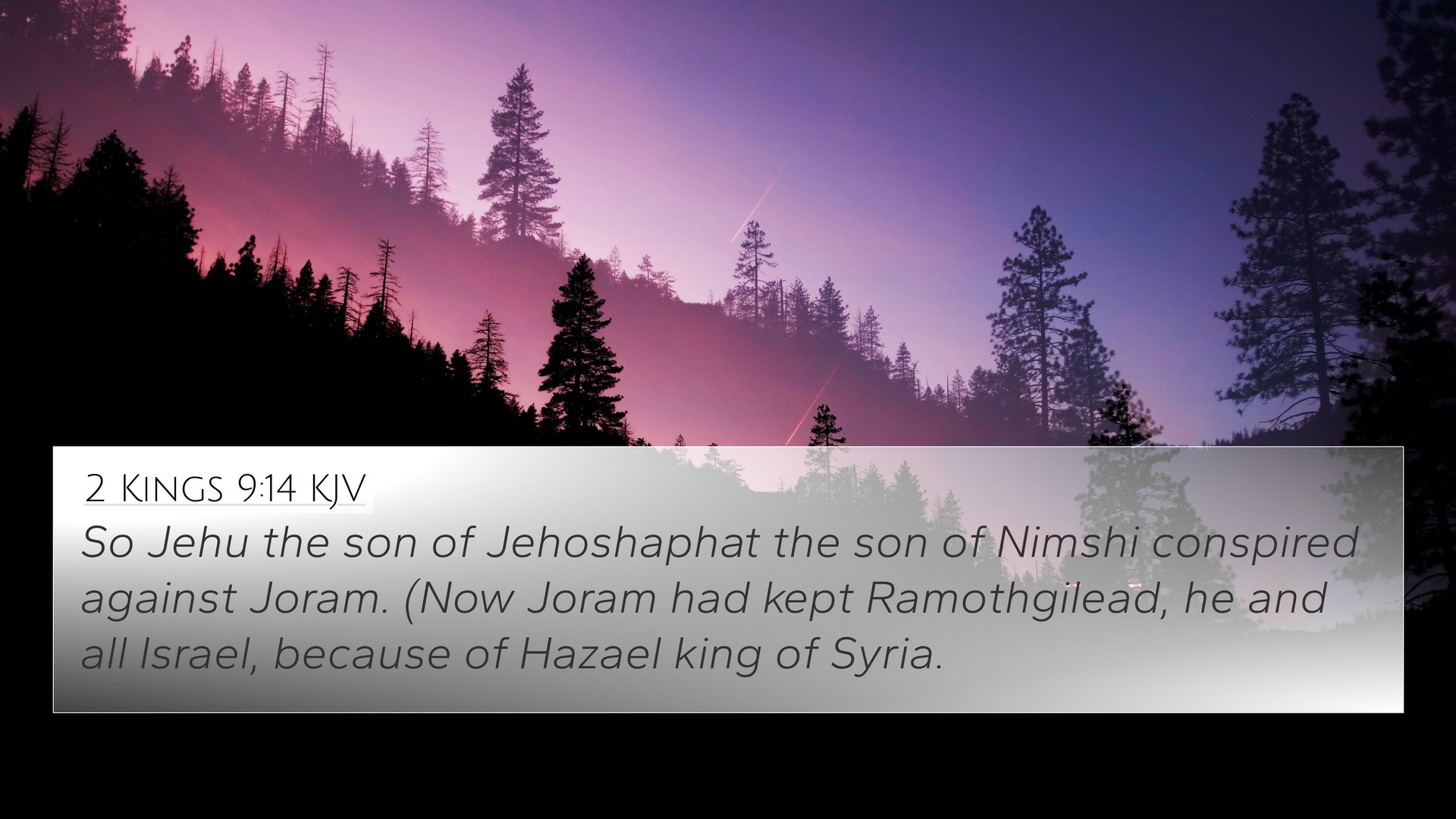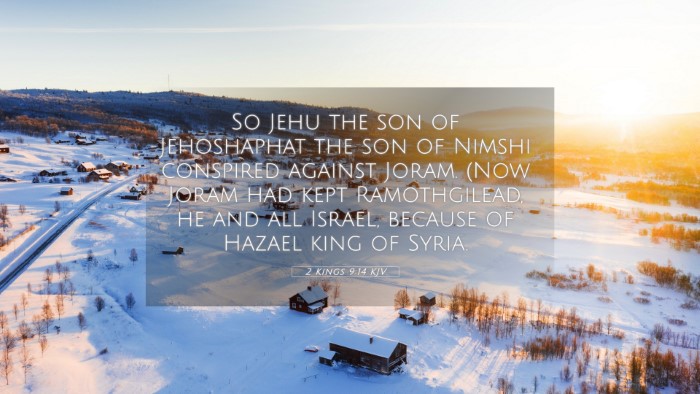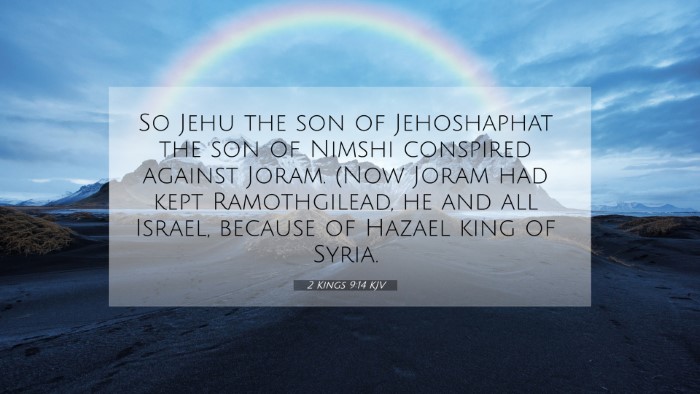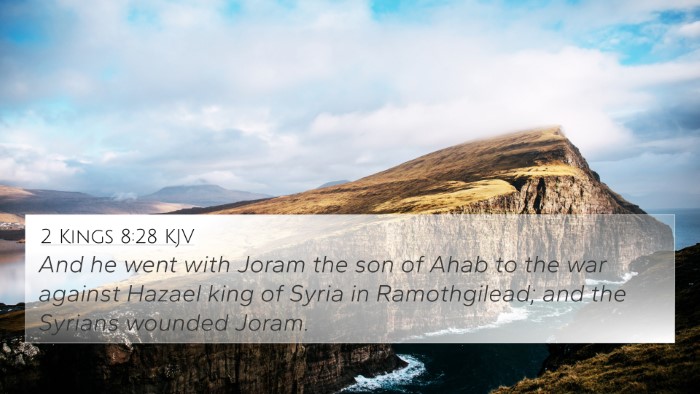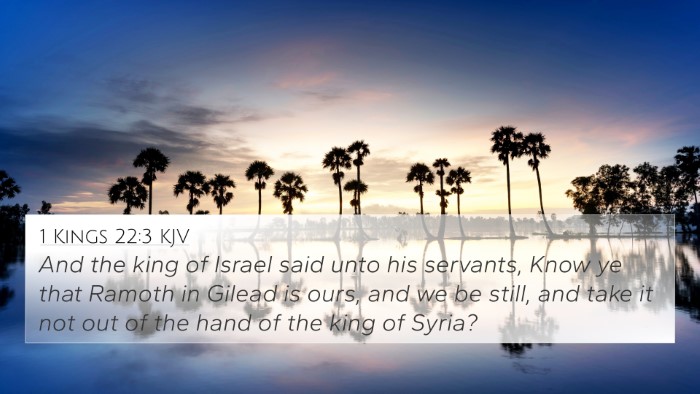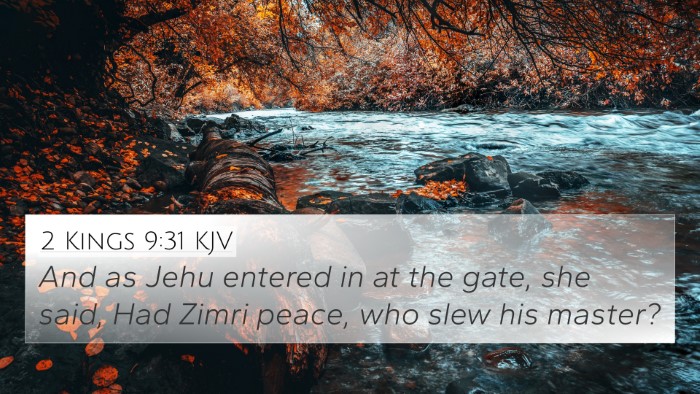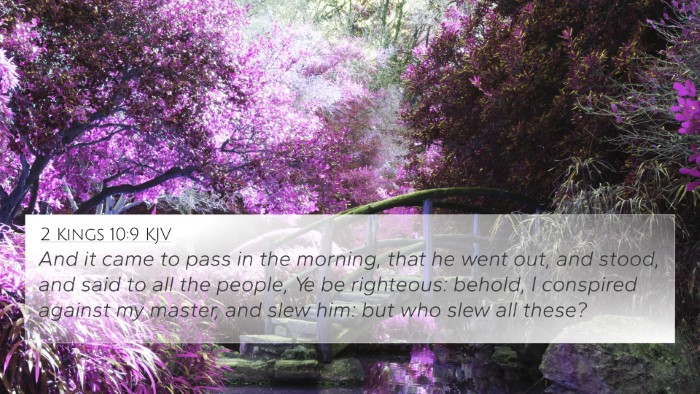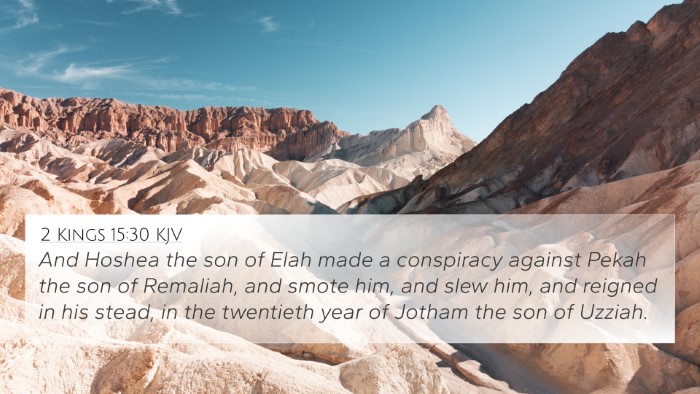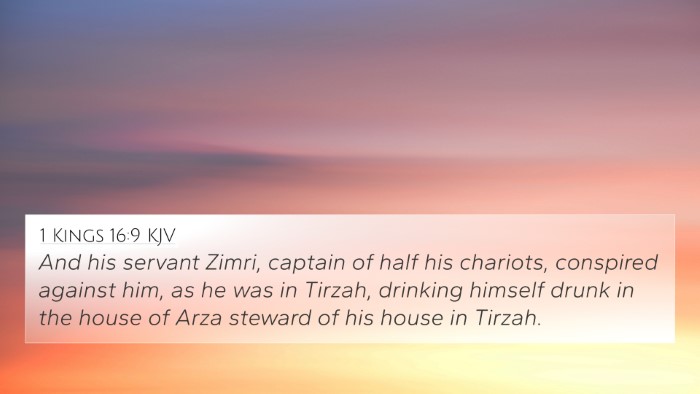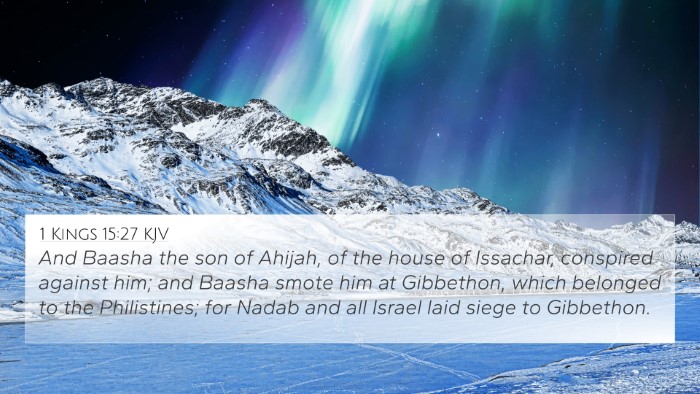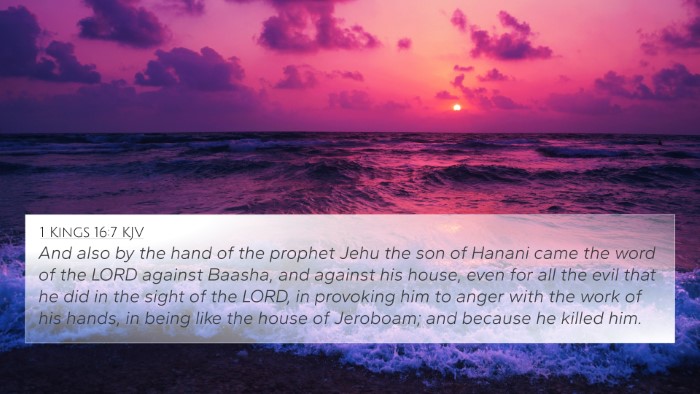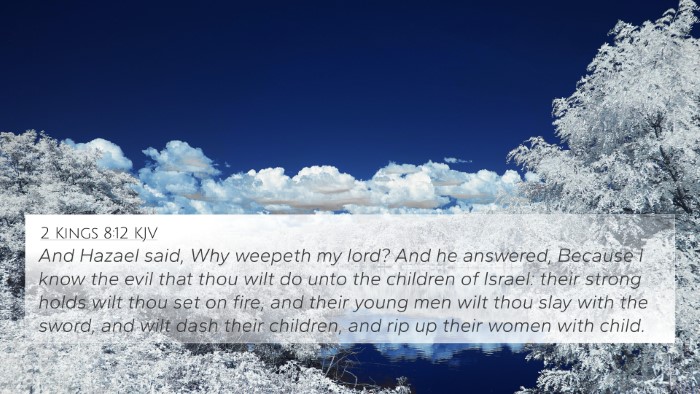Meaning and Interpretation of 2 Kings 9:14
The verse 2 Kings 9:14 states: "So Jehu the son of Jehoshaphat the son of Nimshi conspired against Joram. Now Joram had been defending Ramoth Gilead, he and all Israel, against Hazalel king of Syria." This passage serves as a crucial turning point in the narrative of the Israelite monarchy, invoking themes of conspiracy, divine will, and the unfolding of prophetic destinies.
Contextual Overview
To fully appreciate the meaning of this verse, it is essential to place it within its historical and biblical context. The backdrop involves the recurring cycles of unfaithfulness among Israel's kings and the role of prophets in confronting evil leaders. This verse introduces Jehu, who is significant in both his lineage and the mission he is about to undertake.
Key Themes in 2 Kings 9:14
- Divine Justice: Jehu’s rise is seen as a fulfillment of God's judgment against the house of Ahab, who had perpetuated idolatry and sin.
- Authority and Conspiracy: Jehu is depicted here as someone who plots against a royal figure, showcasing the complex interplay of power and divine plan.
- Prophecy's Fulfillment: The events leading to Jehu's anointing resonate with prophetic warnings given by figures such as Elijah and Elisha.
Public Domain Commentary Analysis
According to Matthew Henry, this verse signifies the providence of God, highlighting how He uses human actions, including conspiracies and plots, to accomplish His purposes. The commentary emphasizes that Jehu’s actions, though conspiratorial, align with God's overarching plan for justice against the house of Ahab.
Albert Barnes adds that Jehu's lineage, being the son of Jehoshaphat, signifies a continuation of the Davidic line while also indicating God's judgment sweeping through the royal houses. His emphasis on the historical authenticity lends credence to the narrative of Israelite leadership dynamics.
Adam Clarke discusses how this verse encapsulates the violent and tumultuous nature of succession in Israel, where intrigue and bloodshed often characterized the path to the throne. Clarke emphasizes the moral implications of Jehu's actions and the repeated theme of divine election versus human scheming.
Bible Cross References
Understanding the connections and similarities between various biblical texts is essential for deeper insight. Here are several Bible cross-references related to 2 Kings 9:14:
- 1 Kings 19:16 - The anointing of Jehu by Elijah as part of God’s plan to bring judgment.
- 2 Kings 8:25-27 - The background of Joram’s reign and evil practices.
- Hosea 1:4 - Prophetic references to the house of Jehu and the coming judgment.
- 2 Kings 10:7-8 - Jehu's execution of Ahab's descendants as a continuation of God’s judgment.
- 2 Chronicles 22:7 - The connection between Ahaziah and Joram’s fate.
- Jeremiah 22:17 - References to the wicked actions of kings and the consequences thereof.
- Psalms 75:7 - "But God is the Judge; He puts down one, and exalts another," reflecting God’s sovereign control over rulers.
Conclusion and Reflection
In conclusion, 2 Kings 9:14 embodies an essential aspect of the biblical narrative—God’s sovereignty intertwined with human action. The verse’s implications extend beyond mere historical account; it is a reminder of how God's purposes unfold through various means, often through the choices and actions of individuals. For those studying the scriptures, this verse, along with its numerous cross-references, serves as a profound basis for exploring themes of divine justice, prophetic fulfillment, and the complexities of earthly power dynamics.
Tools for Understanding Bible Cross-References
For those interested in engaging in cross-referencing, various tools for Bible cross-referencing can enhance the study experience. Consider using a bible concordance or a bible cross-reference guide to further explore the interconnections between verses and create a comprehensive bible cross-reference system for deeper understanding.
Further Study Suggestions
- Look for parallels between the books of Kings and the prophets for a richer understanding of recurring themes.
- Explore how New Testament teachings reflect or reference Old Testament judgments, aiming to see the continuity of God’s message.
- Consider using a bible reference resource to facilitate deeper inter-Biblical dialogue, potentially uncovering themes that resonate across different scripture.
